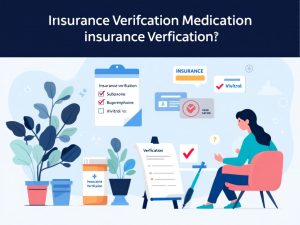Seek help early
If you have been struggling with persistent sadness or an ongoing sense of hopelessness, you may feel uncertain about reaching out for assistance. Recognizing that you need help is often the most difficult step, but it is also the most pivotal in reclaiming a healthier, more fulfilling life. In the United States alone, approximately 10% of people experience depression (Cleveland Clinic). Depression can affect your ability to work, maintain relationships, or even engage in everyday tasks. However, it is crucial to understand that with effective support, these challenges can be managed, and you can begin to regain your sense of well-being.
When you first detect signs such as low mood, fatigue, or changes in sleeping and eating habits, consider consulting a mental health professional. Early intervention can significantly improve your chances of recovery. From mild symptoms to more severe manifestations, there is a broad spectrum of help available. You do not have to wait for the condition to become intolerable before seeking solutions. In fact, prompt action often makes treatment more effective, whether you are dealing with mild depression or severe, ongoing symptoms. Early assistance can also help prevent additional health complications, including other mental health conditions such as anxiety or substance use disorders.
Effective depression treatment services often include a combination of psychotherapy, medication management, and supportive practices such as exercise and healthy lifestyle changes. By opting for early help, you set a positive course for addressing underlying issues, establishing coping strategies, and preventing the condition from worsening. Moreover, reaching out sooner rather than later helps normalize the process of seeking assistance for mental health concerns, which reduces stigma and encourages others to do the same.
Experience specialized outpatient care
When you decide to seek professional help for depression, one powerful option is specialized outpatient care. Outpatient settings enable you to attend counseling or therapy sessions and other appointments while maintaining your daily schedule at home or work, striking an ideal balance for many people. At Epic Health Partners, we offer a range of outpatient services built around compassionate staff, innovative frameworks, and evidence-based methods. This supportive model allows you to receive consistent treatment without sacrificing your regular responsibilities or social life.
One of our primary goals is to offer care that aligns directly with your needs. For instance, you might find the most benefit from an intensive outpatient program (IOP) if you need structured, frequent sessions during the week. Alternatively, if you or a loved one require more extensive support but still wish to live at home, a partial hospitalization program (PHP) can provide close clinical monitoring and a higher level of care. In both cases, you can expect a comprehensive approach that caters to your emotional health, therapeutic progress, and social well-being.
We also recognize the importance of flexibility, especially when it comes to scheduling and accessibility. If attending appointments in person presents a challenge due to location or health limitations, telehealth therapy services can enable you to receive the help you need from the comfort of your home. This virtual option makes it easier for individuals with limited mobility, hectic lifestyles, or transportation barriers to still receive timely, personalized treatment. Through secure video sessions, you can engage in meaningful therapy discussions, maintain accountability, and receive immediate feedback on your progress.
Benefit from evidence-based therapies
A crucial cornerstone of successful depression treatment involves participation in researched, clinically proven therapies. By focusing on evidence-based care, you ensure that the strategies you use to cope, heal, and grow have been supported by extensive professional studies. At Epic Health Partners, we prioritize therapies that draw upon years of clinical data, helping you achieve the best possible outcome.
One widely respected framework is cognitive behavioral therapy (CBT). CBT helps you identify and reframe negative thought patterns that can contribute to depressive symptoms. By learning coping strategies and healthier perspectives, you can better manage triggers, stressors, and daily challenges. Another effective approach is dialectical behavior therapy (DBT), which aids in regulating intense emotions and developing mindfulness techniques. DBT sessions encourage you to acknowledge and accept your feelings instead of pushing them away, making these moments more manageable.
If you feel your motivation is lacking, motivational interviewing therapy can help. This approach guides you to harness your intrinsic drive for change, particularly beneficial if you are uncertain about taking the next steps or if you have conflicting feelings about the recovery process. By focusing on the personal reasons behind wanting to improve, you can develop stronger resolve and clarity around your mental health goals.
Our emphasis on evidence-based treatments also extends to medical evaluations and medication management. You can schedule a psychiatric evaluation outpatient appointment to identify whether medication is appropriate for your situation. If so, our team can guide you through medication management, ensuring that you experience the correct dosage, remain vigilant about side effects, and feel fully supported throughout the process. The combination of therapy and proper medication can provide comprehensive relief, especially for those facing moderate-to-severe depression.
Address co-occurring conditions
Many individuals living with depression also encounter additional mental health concerns or substance use issues. You might notice that symptoms of anxiety, bipolar disorder, or other psychiatric conditions complicate your depression treatment journey. Using substances such as alcohol or drugs as a way to cope with depression can also turn into an unwanted cycle that exacerbates both conditions. If you have been grappling with such concurrent challenges, it is vital to seek care from professionals skilled in addressing co-occurring disorders.
When you opt for assistance at Epic Health Partners, you gain access to co-occurring disorders treatment, a specialized service designed to simultaneously tackle multiple diagnoses. Rather than addressing depression in isolation, our integrative care model acknowledges how each mental health or substance use issue can feed into another. Co-occurring conditions might intensify depressive feelings, complicate the therapeutic process, or impede medication effectiveness. By treating them together, providers can develop a more accurate understanding of how to help you achieve lasting relief.
For instance, you may discover that substance use outpatient therapy is beneficial alongside depression counseling. This coordinated approach can help you break unhealthy coping patterns, identify alternate strategies for handling stress or despair, and maintain better long-term recovery. During therapy, you can explore how emotional triggers, daily stressors, and societal pressures contribute to both depression and substance use. As you learn healthier ways to balance your mental and emotional needs, you lower the risk of relapse in one condition triggering complications in the other.
This co-occurring care principle applies to a variety of conditions, including anxiety and PTSD, which are often intertwined with depression. At Epic Health Partners, we aim to provide a system of support that attends to each aspect of your well-being. That could mean integrating trauma informed counseling alongside depression-focused therapy or bridging the gap between group sessions for substance use and individual therapy for mood disorders. Whatever your situation, this coordinated plan optimizes your chances of breaking free from these interconnected distress patterns.
Build a supportive environment
Recovering from depression is often more successful when you have nurturing support networks. While therapy and medical interventions are vital, the emotional atmosphere surrounding you can deeply influence your day-to-day resilience. Building friendships, leaning on family, and engaging in group settings can help you maintain accountability and foster a sense of belonging. When the people around you understand your journey, they can offer empathy and encouragement.
Epic Health Partners cultivates a supportive environment within our programs. For example, group therapy mental health sessions allow you to interact with others who have faced comparable challenges. Sharing your experiences in a safe and private setting helps normalize the feelings of isolation or shame that you may carry. You also gain insight from people who have developed their own ways of coping, which may inspire new strategies for your personal life.
Family involvement can be a powerful tool as well. Our family counseling mental health services help relatives and close friends learn more about depression and gain insights into supporting you effectively. These sessions address communication, conflict resolution, and the ways in which family dynamics might influence mental health. By including loved ones in the healing process, you increase your network of support and encourage them to understand any changes in your behavior or needs with compassion.
Beyond formal therapy sessions, you might also consider joining local or online support groups. Interaction with a broader community of survivors can motivate you to stay consistent in your treatment plan. Organizations like SAMHSA provide free, confidential hotlines that offer resources and referrals if you are experiencing a crisis or looking for additional assistance. The sense of camaraderie found in peer support networks can help you develop self-confidence, discover new coping strategies, and regain the optimism that depression often clouds.
Foster long-term well-being
Achieving immediate relief from depressive symptoms is just one part of your journey. Long-term well-being requires ongoing maintenance, lifestyle adjustments, and preventive measures to minimize the risk of relapse. After all, depression is a condition that can flare up in response to life’s challenges, stress, or physiological changes. By integrating mental health support into your routine, you can bolster resilience and maintain the progress you have worked so hard to attain.
One effective strategy is to develop a relapse-prevention approach with guidance from mental health professionals. You can create a wellness plan that includes regular check-ins, healthy coping mechanisms, and details on how to address any early warning signs of a potential downturn. Tools like relapse prevention planning ensure that if you begin feeling overwhelmed again, you can immediately tap into resources. That might mean scheduling extra therapy sessions, adjusting medications, or connecting with supportive peers.
At Epic Health Partners, we also promote holistic well-being. Simple habits, such as daily walks, balanced nutrition, and adequate sleep, can have profound effects on mood and energy levels (Psychology Today). Incorporating physical activity, for instance, releases endorphins that elevate mood and support better overall health. You might also find relaxation in activities like journaling or creative expression, adding structure and positivity to your daily life.
We also emphasize a personalized continuum of care that connects your current treatments with supportive services down the line. If your symptoms evolve or your personal circumstances change, our team at Epic Health Partners can adapt your plan accordingly. In some cases, short-term stays in more intensive programs can be beneficial, though many individuals thrive in well-structured outpatient scenarios. Our ultimate goal is to equip you with the coping skills, emotional tools, and mental fortitude you need to navigate future stressors. This vision helps you transition from being a treatment participant to living as someone who has integrated healthy self-care strategies into every aspect of daily life.
FAQs about depression treatment
Below are answers to five frequently asked questions about receiving treatment for depression. These insights can help you or your loved ones gain clarity about the path to improved mental health.
1. How do I recognize when it is time to seek help?
If you have noticed persistent sadness, loss of interest in activities, changes in sleep or appetite, or difficulties functioning at work or home for more than a couple of weeks, it may be time to seek professional assistance. Early intervention often improves outcomes, so paying attention to these warning signs is crucial.
2. Will insurance typically cover my depression treatment?
Many insurance plans do cover mental health services, though the extent of coverage can vary. It is always wise to check with your insurance provider about deductibles, copays, and any coverage limits. If you do not have coverage or if your plan is limited, ask providers about sliding-scale fees or alternative payment options.
3. Can I combine therapy with medication?
Yes. For moderate-to-severe depression, combining therapy and medication is frequently recommended (Mayo Clinic). Therapy can address thought patterns or behaviors contributing to depression, while medication helps regulate brain chemistry. Together, they often offer a well-rounded approach to sustained recovery.
4. Do you offer crisis interventions if things get worse?
If your depression escalates to a crisis point, our suicide crisis intervention and comprehensive crisis services are ready to step in. These intensive measures provide immediate assistance and carefully planned follow-up to keep you safe and stabilize your mood.
5. Can co-occurring disorders be handled alongside depression?
Absolutely. We offer dual diagnosis treatment and specialized care for those experiencing multiple conditions. This approach simultaneously addresses the unique challenges of each diagnosis, improving your chances of a long-term, stable recovery.
Start your journey today
Choosing Epic Health Partners for your outpatient behavioral health, psychiatric, and substance-use needs means embracing a comprehensive, empathetic, and tailored strategy. We strive to offer you the support necessary for lasting recovery by combining individualized plans with a robust network of resources. Whether you require medication assisted treatment (MAT), substance use outpatient therapy, or a consultation for potential co-occurring disorders treatment, our team stands ready to guide you.
If you appreciate a flexible approach, you can explore virtual services, such as telepsychiatry services or virtual psychiatric evaluations. These allow you to access professional guidance from locations that best fit your schedule or physical concerns. Additionally, programs like our aftercare planning ensure you continue receiving structured guidance even after intensive treatment phases have ended. This consistent care expands your arsenal of coping mechanisms, ultimately reducing the likelihood of relapse and strengthening enduring well-being.
Through our depression treatment services, we focus on the unique challenges, supportive environment, tailored treatment programs, and comprehensive care you deserve. We encourage you to connect with us and explore how outpatient therapy, medication management, crisis intervention, or group counseling can offer hope and stability. You do not have to continue living under the weight of unrelenting sadness or dread. When you are ready, we are here to provide a structured, empathetic plan designed not merely to mitigate symptoms, but to create a healthier, more fulfilling life.







